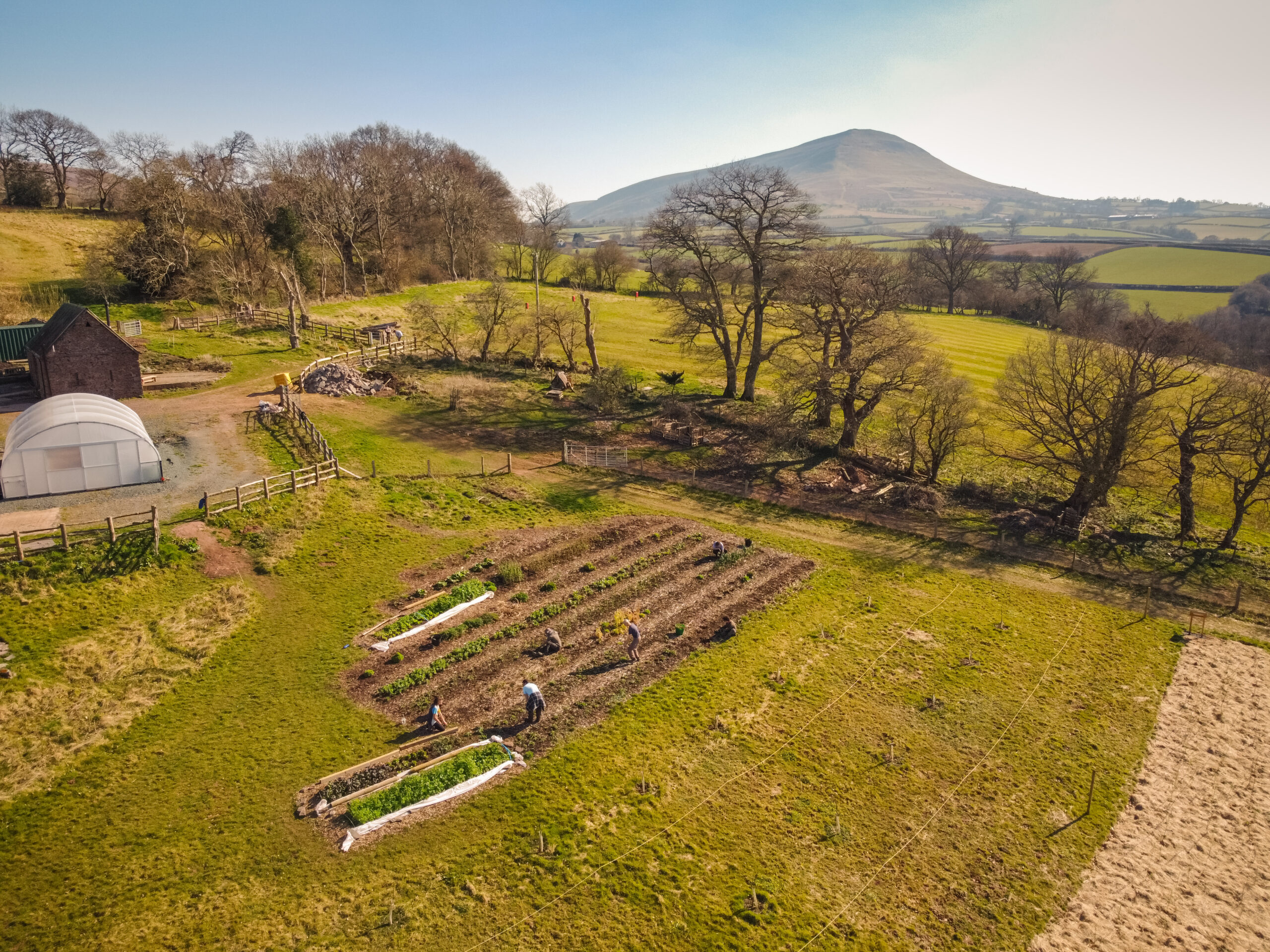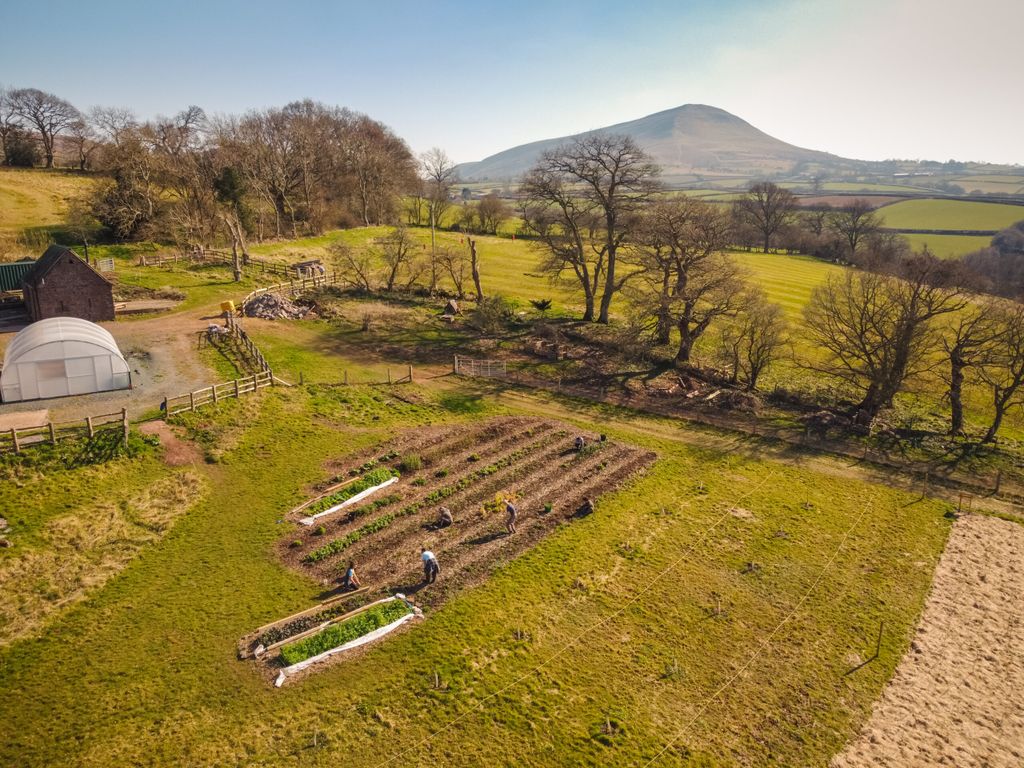Food security had a lot of airtime last month – at last. In France, the government warned citizens to prepare emergency rations. Norway announced it was stockpiling grain. In the UK, we had a new report by the National Preparedness Commission, an OpEd from the author Tim Lang and another by George Monbiot in the Guardian. Lang talked about the lack of preparedness by the UK government. Monbiot talked about his personal response: in the absence of government stockpiles, he himself is stockpiling food.
While national stockpiles might be sensible precautions to take, they are only appropriate as stop gap measures when supply chains fail. They do not address the structural problems of food supply itself, nor do they address the huge inequalities in the availability (and cost) of nutritious food. A bolder, more far-reaching transformation of our food system is required. This could take the form of technologically sophisticated vertical farms and capital and energy intensive lab grown protein, but these risk exacerbating the problems of energy consumption, distribution and access. There is another way to solve the problem: localised, regenerative, controlled conditions horticulture integrated into existing farming systems. This is what we teach at Black Mountains College. Not only does this approach represent a huge opportunity for jobs, nutrition, social justice and the cost of living, it is also a solution to what is increasingly becoming a national security issue.
Once upon a time, across the Marches, on the border between England and Wales, market gardens and orchards all along the railways provisioned the cities of Cardiff, Bristol and Birmingham. Then came the Beeching cuts that ripped out the rail networks followed by the Common Agricultural Policy that ripped out the orchards, hedgerows and glasshouses to make way for intensive arable and livestock.
Now we are faced with an unreliable climate veering between -10 Celsius in the winter and +40 in the summer and the trajectory is worse. Harsh frosts and storms in winter and droughts in summer make outdoor growing challenging. Nonetheless, root vegetables and some crops can still manage quite well at field scale. For everything else, polytunnels and glasshouses are the key. They can be irrigated, ventilated and shaded. On larger scales they can even be automated – as the Netherlands has pioneered.
With supermarket shortages in recent years of, variously, courgettes, tomatoes and cucumbers and the prospect of more disruption to supply chains on the horizon, the case for growing more veg in the UK is overwhelming. The Netherlands is the largest exporter of vegetables in the world. There is no reason the UK could not be producing much of what we import ourselves: if agricultural subsidies were aligned.
Controlled conditions growing under cover can be integrated into any existing farm or land-based business: they pair especially well with livestock farming where the manure and compost waste can be recycled (take note chicken farms in polluted river catchments!). The amount of calories produced on two or three acres of a regeneratively farmed horticulture business is exponentially higher than intensive arable or livestock. It is also labour intensive. Done right, there are hundreds if not thousands of jobs to be supported in supplying rural areas and cities alike with nutritious, locally grown vegetables.
The Welsh government seems to understand this with its new small grants payments for horticulture establishment and agricultural diversification, but the small grants are not enough and the diversification grants are cumbersome to apply for and suffer from a low intervention rate. No wonder they are undersubscribed. The other problem is that these grants available through Rural Payments Wales, are only accessible to farms with holding numbers of a certain size. Smallholders are excluded. A small change to this arrangement and a higher intervention rate of 70—80% could unlock a wave of local horticulture businesses.
Powys County Council has taken a bold step with its Sarn project, giving over a country farm to be divided into four small horticulture enterprises of four acres each accompanied by new planning guidance for Rural Enterprise Dwellings for Horticulture. This exciting model, designed by Our Food 1200, Social Farms and Gardens, Shared Assets, Landworkers’ Alliance, Cultivate, Nature Friendly Farming Network, Lantra, Ecological Land Cooperative, Eco Dyfi and Gwlad Consortium, with Black Mountains College also playing a small role, holds out the prospect of a win-win-win scenario: nutritious local food, meaningful long term rural jobs and rural housing. This small change to the planning framework has been adopted by Powys and Bannau Brycheiniog National Park so far, but it could easily be adopted by other local authorities.
One of our students has been selected as among the pioneers who will take up the leases at the Sarn project. There are dozens more who are eager for similar opportunities. The young people who are flocking to Black Mountains College are eager for meaningful jobs to help make Wales healthier and more food secure. They come to study in a beautiful landscape and they invariably want to stay and make a life here afterwards. But there are no houses. Our Food 1200’s model of supporting new entrants to horticulture received many pledges of land from landowners but the sticking point was housing.
There is a very real possibility that this model of land tied to housing tied to educational opportunities like our NVQs in Regenerative Horticulture and Agro-Ecology could be the basis of a food system transformation across the country. The demand for healthy food is there (enhanced by changes to public procurement frameworks), the labour is there, the educational pathways are there, the planning guidance is there. All that is missing is some creativity with subsidies for new business establishment and a bright future for healthy food, meaningful jobs and a revitalised rural economy in Wales could be just around the corner.
By Ben Rawlence, CEO

More like this
-

THE FUTURE IS HEALTHY AND NUTRITIOUS – HERE’S HOW TO MAKE IT HAPPEN
As food security rises on the global agenda, the solution isn’t stockpiling but transforming our…
-

Training for a Changing World
As the challenges facing our natural world grow more complex, the need for skilled, adaptable…
-

Talgarth Talks Community Lectures
Talgarth Talks are monthly public lectures that aim to inspire the ecological imagination, spark fresh…
The BMC Prospectus
Download the Black Mountains College prospectus for an overview of our courses, campuses, and vibrant student life
Visit us
Come along to one of our Discovery Days or Campus Tours to explore our campuses and meet your tutors
